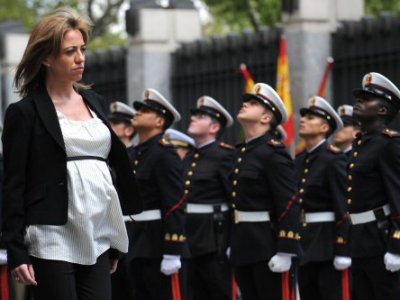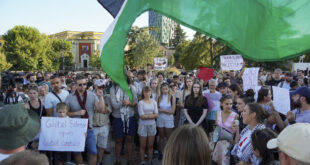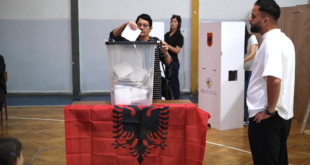 `This has been a decision by the whole government,` Carme Chacon told a news conference.
`This has been a decision by the whole government,` Carme Chacon told a news conference.
Spain’s defence minister on Monday denied reports of a split within the Socialist government over a decision to pull troops out of Kosovo which has dampened hopes of better ties with the United States.
“This has been a decision by the whole government,” Carme Chacon told a news conference called after media reported anger within the foreign ministry as well as an attempt by the prime minister’s office to backtrack on the measure.
The announcement of the withdrawal, made by Chacon wearing a camouflage jacket during a visit to the 600 Spanish troops in Kosovo last Thursday, led the United States to say it was surprised and “deeply disappointed.”
It continued an accident-prone start to the year for the Socialist government, which also faces losing control of parliament just as it struggles against a deep recession.
The White House disapproval will be extremely disappointing to Prime Minister Jose Luis Rodriguez Zapatero, who had hoped for much closer relations with the United States following the election of President Barack Obama, with whom he shares many left-leaning ideals.
Spain has suffered strained ties with the United States since 2004, when Zapatero withdrew troops from Iraq in compliance with an election promise.
Chacon said that Spain had decided to withdraw its troops from Kosovo as a consequence of its unilateral declaration of indepdendence last year, which Madrid opposes because it thinks it sets a bad example for separatist movements in the Basque Country and Catalonia.
But the withdrawal could deepen suspicions in Washington that Spain is not a dependable ally, wrote foreign policy analyst Jose Ignacion Torreblanca in newspaper El Pais.
“Kosovo isn’t Iraq, but two withdrawals is a bit too much of a coincidence. Logically some people could ask themselves what Spain’s problem is,” wrote Torreblanca.
The decision drew flak from all sides, including NATO and, according to newspapers, unnamed officials within the Socialist government itself.
It was the second time in two months that a government minister has been the focus of criticism so fierce and widespread, following the resignation of the justice minister in February over a hunting trip he shared with a senior judge.
Even without accident, the government faces a rough ride over its remaining three years, as it looks set to lose the support of Basque nationalists in the national parliament. This will mean Zapatero will struggle to raise a majority for legislation which is not backed by the conservative opposition.
 Eurasia Press & News
Eurasia Press & News


